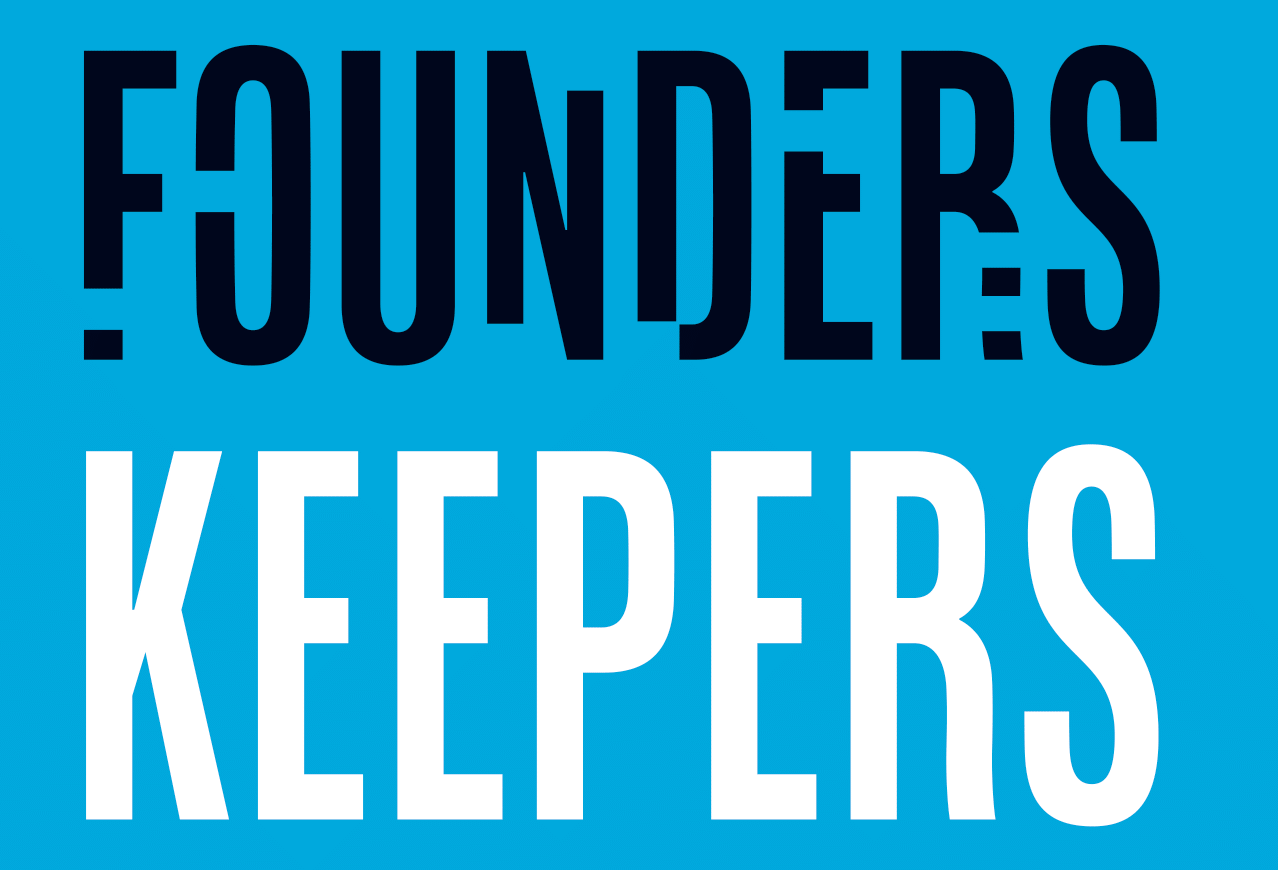Article
The Ultimate Guide to Leadership Mastery: Insights from 45 Years of Executive Coaching
August 11, 2024

Leadership is not just about guiding teams; it's about sculpting the future. Over the past 45 years, I've dedicated my career to understanding what truly sets exceptional leaders apart. This journey has taken me across the globe, working with executives from a myriad of industries, cultures, and organizational structures. My conclusions aren't based on theory or a few isolated experiences. They are the result of meticulous analysis of thousands of 360-degree assessments, encompassing 46 leadership competencies and a staggering 64,000 pages of comments from leaders' coworkers. This treasure trove of data has revealed patterns, behaviors, and strategies that define the hallmarks of extraordinary leadership.
The Data-Driven Leader: Where Science Meets Practice
When it comes to leadership, anecdotal evidence isn’t enough. My research has focused on gathering quantitative and qualitative data to draw meaningful conclusions. The thousands of 360 assessments I've analyzed provided not just a snapshot of leader performance but a detailed map of what works and what doesn't. These assessments have consistently highlighted 22 key competencies that leaders must master to drive success. These include visionary thinking, emotional intelligence, strategic foresight, adaptability, and ethical integrity. But it’s not just the competencies that matter; it’s how these leaders embody them day in and day out.
Vision: The North Star of Leadership At the heart of great leadership is vision. Exceptional leaders don’t just react to the present; they anticipate the future. They set clear, compelling goals that inspire and align their teams. But vision alone isn’t enough. These leaders are strategic thinkers who can turn vision into reality. They understand the big picture, foresee challenges, and navigate their organizations toward long-term success. Their strategic mindset ensures that every decision they make is in service of a larger purpose, and they communicate this purpose with clarity and passion.
The Power of Emotional Intelligence In my decades of research, one trait has emerged as a non-negotiable for successful leadership: emotional intelligence. Leaders who excel in this area connect deeply with their teams, understanding not just the professional but the personal dynamics that drive performance. They manage their emotions and those of others with finesse, fostering an environment of trust and collaboration. These leaders are the ones who can navigate the rough seas of organizational change with grace, maintaining morale and cohesion even when times are tough.
Adaptability: The Survival Skill of the Modern Leader We live in a world of constant change, and the best leaders are those who can adapt on the fly. The data shows that flexibility is critical and leaders who thrive in dynamic environments are those who can pivot strategies quickly in response to new information. But adaptability isn’t just about survival; it’s about innovation. These leaders encourage their teams to think creatively, to embrace change as an opportunity rather than a threat. They foster a culture where new ideas are welcomed, and calculated risks are taken, driving continuous improvement and keeping the organization ahead of the curve.
The Ethics of Leadership: Integrity as a Foundation Throughout my career, I’ve seen that the most respected leaders are those who lead with integrity. They embody high moral standards and make decisions that are ethical and transparent. This isn’t just about following the rules; it’s about setting a tone for the entire organization. Leaders with integrity build trust—both within their teams and with external stakeholders. They create an environment where people feel safe, respected, and valued, which in turn drives loyalty and performance.
Communication: The Glue That Holds Everything Together No matter how brilliant a leader's vision or strategy, it will fall flat without effective communication. The best leaders I’ve studied are those who excel at communicating clearly and persuasively. They ensure that everyone in the organization understands not just what needs to be done, but why it matters. They foster open dialogue, encourage feedback, and make sure that their message resonates at every level of the organization. This clarity in communication helps to align efforts, reduce misunderstandings, and drive the organization towards its goals.
Empowerment and Delegation: Trusting the Team One of the most consistent findings from the thousands of pages of comments I’ve reviewed is the importance of empowerment. Exceptional leaders don’t micromanage; they trust their teams. They delegate effectively, giving team members the autonomy to take ownership of their tasks. This not only enhances productivity but also fosters a sense of accountability and empowerment. These leaders understand that their role is to provide guidance and support, not to control every detail. By empowering their teams, they create an environment where innovation flourishes and where employees feel valued and motivated to contribute their best work.
Continuous Improvement: The Relentless Pursuit of Excellence Great leaders are never satisfied with the status quo. They are always looking for ways to improve processes, drive innovation, and enhance performance. This commitment to continuous improvement is what keeps organizations competitive in a rapidly changing world. The data shows that leaders who encourage creativity and support calculated risks are the ones who drive their organizations forward. They create a culture of learning, where mistakes are seen as opportunities for growth rather than failures to be punished.
The Bottom Line: Leadership is Both an Art and a Science After 45 years of research and experience, one thing is clear: leadership is both an art and a science. It requires a deep understanding of human behavior, strategic thinking, and the ability to inspire and motivate others. But it also requires a commitment to continuous learning and improvement. The best leaders are those who are constantly refining their skills, who are open to feedback, and who are always looking for ways to better serve their teams and their organizations.
The insights I’ve gained from analyzing thousands of 360 assessments and tens of thousands of pages of comments have given me a unique perspective on what it takes to be a great leader. It’s not about having all the answers; it’s about asking the right questions. It’s not about being perfect; it’s about being authentic. And most importantly, it’s about understanding that leadership is a journey, not a destination. The path to exceptional leadership is one that requires dedication, humility, and a relentless drive to be better every day.
Vision: The North Star of Leadership At the heart of great leadership is vision. Exceptional leaders don’t just react to the present; they anticipate the future. They set clear, compelling goals that inspire and align their teams. But vision alone isn’t enough. These leaders are strategic thinkers who can turn vision into reality. They understand the big picture, foresee challenges, and navigate their organizations toward long-term success. Their strategic mindset ensures that every decision they make is in service of a larger purpose, and they communicate this purpose with clarity and passion.
The Power of Emotional Intelligence In my decades of research, one trait has emerged as a non-negotiable for successful leadership: emotional intelligence. Leaders who excel in this area connect deeply with their teams, understanding not just the professional but the personal dynamics that drive performance. They manage their emotions and those of others with finesse, fostering an environment of trust and collaboration. These leaders are the ones who can navigate the rough seas of organizational change with grace, maintaining morale and cohesion even when times are tough.
Adaptability: The Survival Skill of the Modern Leader We live in a world of constant change, and the best leaders are those who can adapt on the fly. The data shows that flexibility is critical and leaders who thrive in dynamic environments are those who can pivot strategies quickly in response to new information. But adaptability isn’t just about survival; it’s about innovation. These leaders encourage their teams to think creatively, to embrace change as an opportunity rather than a threat. They foster a culture where new ideas are welcomed, and calculated risks are taken, driving continuous improvement and keeping the organization ahead of the curve.
The Ethics of Leadership: Integrity as a Foundation Throughout my career, I’ve seen that the most respected leaders are those who lead with integrity. They embody high moral standards and make decisions that are ethical and transparent. This isn’t just about following the rules; it’s about setting a tone for the entire organization. Leaders with integrity build trust—both within their teams and with external stakeholders. They create an environment where people feel safe, respected, and valued, which in turn drives loyalty and performance.
Communication: The Glue That Holds Everything Together No matter how brilliant a leader's vision or strategy, it will fall flat without effective communication. The best leaders I’ve studied are those who excel at communicating clearly and persuasively. They ensure that everyone in the organization understands not just what needs to be done, but why it matters. They foster open dialogue, encourage feedback, and make sure that their message resonates at every level of the organization. This clarity in communication helps to align efforts, reduce misunderstandings, and drive the organization towards its goals.
Empowerment and Delegation: Trusting the Team One of the most consistent findings from the thousands of pages of comments I’ve reviewed is the importance of empowerment. Exceptional leaders don’t micromanage; they trust their teams. They delegate effectively, giving team members the autonomy to take ownership of their tasks. This not only enhances productivity but also fosters a sense of accountability and empowerment. These leaders understand that their role is to provide guidance and support, not to control every detail. By empowering their teams, they create an environment where innovation flourishes and where employees feel valued and motivated to contribute their best work.
Continuous Improvement: The Relentless Pursuit of Excellence Great leaders are never satisfied with the status quo. They are always looking for ways to improve processes, drive innovation, and enhance performance. This commitment to continuous improvement is what keeps organizations competitive in a rapidly changing world. The data shows that leaders who encourage creativity and support calculated risks are the ones who drive their organizations forward. They create a culture of learning, where mistakes are seen as opportunities for growth rather than failures to be punished.
The Bottom Line: Leadership is Both an Art and a Science After 45 years of research and experience, one thing is clear: leadership is both an art and a science. It requires a deep understanding of human behavior, strategic thinking, and the ability to inspire and motivate others. But it also requires a commitment to continuous learning and improvement. The best leaders are those who are constantly refining their skills, who are open to feedback, and who are always looking for ways to better serve their teams and their organizations.
The insights I’ve gained from analyzing thousands of 360 assessments and tens of thousands of pages of comments have given me a unique perspective on what it takes to be a great leader. It’s not about having all the answers; it’s about asking the right questions. It’s not about being perfect; it’s about being authentic. And most importantly, it’s about understanding that leadership is a journey, not a destination. The path to exceptional leadership is one that requires dedication, humility, and a relentless drive to be better every day.
share this
Related Articles
Related Articles

The Leadership Tightrope If you lead long enough, you start to realize something uncomfortable: everything that makes you effective also threatens to undo you. Your drive becomes impatience. Your confidence becomes stubbornness. Your empathy turns into guilt. The longer you lead, the more you realize that the job isn’t about choosing one trait over another — it’s about learning to carry both. That’s what maturity looks like in leadership. It’s not balance. It’s tension well managed. The False Comfort of Either/Or Most leaders crave clarity. We want rules. Playbooks. Certainty. Should I be tough or kind? Decisive or collaborative? Visionary or practical? The insecure part of the brain hates contradiction. It wants the “right answer.” But leadership lives in the messy middle — the place where both truths exist, and neither feels comfortable. The best leaders aren’t either/or thinkers. They’re both/and navigators. A Story from the Field I once coached a CEO who told me, “I’m torn between holding people accountable and being empathetic.” I said, “Why do you think those are opposites?” He paused, then laughed. “Because it’s easier that way.” Exactly. It’s easier to pick a lane than to learn how to drive in two at once. He eventually realized the real question wasn’t which side to choose, but when and how to lean into each. He became known as “the fairest tough boss in the building.” That’s the magic of integration — toughness with tenderness, vision with realism, clarity with compassion. Why Paradox Feels So Hard Contradictions feel like hypocrisy when you haven’t made peace with your own complexity. If you believe you have to be one consistent version of yourself — confident, decisive, inspiring — then every moment of doubt feels like fraud. But the truth is, great leaders are contradictory because humans are contradictory. You can be grounded and ambitious, humble and proud, certain and still learning. The work is not to eliminate the tension — it’s to get comfortable feeling it. The Psychology Behind It Our brains love binaries because they make the world simple. But complexity — holding opposites — is the mark of advanced thinking. Psychologists call this integrative complexity — the ability to see multiple perspectives and blend them into a coherent approach. It’s not compromise; it’s synthesis. It’s saying, “Both are true, and I can move between them without losing my integrity.” That’s where wisdom lives — in the movement, not the answer. Funny But True A client once told me, “I feel like half monk, half gladiator.” I said, “Congratulations. That means you’re leading.” Because that’s what the job demands: peace and fight, compassion and steel. If you can’t hold both, you end up overusing one until it breaks you. The Cost of One-Dimensional Leadership We’ve all worked for the “results-only” leader — brilliant, efficient, and emotionally tone-deaf. And the “people-first” leader — kind, loyal, and allergic to accountability. Both are exhausting. Both create lopsided cultures. When leaders pick a single identity — visionary, disciplinarian, nurturer, driver — they lose range. They become caricatures of their strengths. True greatness comes from emotional range, not purity. The Paradox Mindset Here’s how integrative leaders think differently: They value principles over preferences. They can be decisive without being defensive. They know empathy isn’t weakness and toughness isn’t cruelty. They trade perfection for adaptability. They’re the ones who can zoom in and out — from the numbers to the people, from the details to the meaning — without losing coherence. They’re not consistent in behavior. They’re consistent in values. That’s the difference. How to Practice Both/And Thinking Spot your overused strength. The strength that’s hurting you most is the one you lean on too much. If you’re decisive, try listening longer. If you’re compassionate, try being direct faster. Ask, “What’s the opposite quality trying to teach me?” Impatience teaches urgency; patience teaches perspective. You need both. Invite your opposite. Bring someone onto your team who balances your extremes — not a mirror, a counterweight. Hold paradox out loud. Tell your team, “This decision has tension in it — and that’s okay.” Modeling that normalizes complexity for everyone else. A Moment of Self-Honesty I’ve spent decades watching leaders chase “clarity” like it’s peace. But peace doesn’t come from eliminating tension. It comes from trusting yourself inside it. Once you accept that leadership will always feel contradictory, you stop fighting it — and start flowing with it. You don’t need to be the calmest, toughest, or most visionary person in the room. You just need to be the one who can stay whole while the world pulls you in opposite directions. Your Challenge This Week When you catch yourself thinking, “Should I be X or Y?” — stop. Ask instead, “How can I be both?” Then practice it in one small moment. Be kind and firm. Bold and humble. Fast and thoughtful. That’s where growth hides — in the discomfort between two truths. Final Word The best leaders aren’t balanced. They’re integrated. They’ve stopped trying to erase their contradictions and started using them as fuel. They’ve learned that leadership isn’t about certainty. It’s about capacity — the capacity to hold complexity without losing your center. That’s not chaos. That’s mastery
STAY UP TO DATE
GET PATH'S LATEST
Receive bi-weekly updates from the church, and get a heads up on upcoming events.
Contact Us










